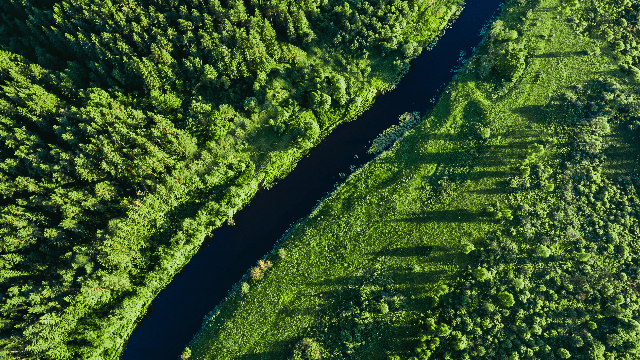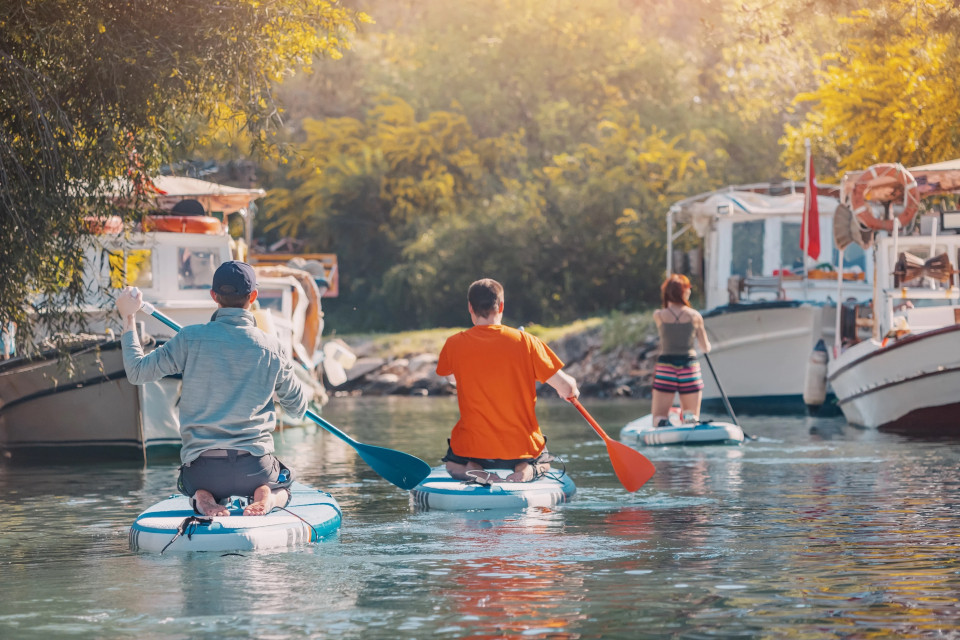Navigating the River-lution: harmonize social, ecological, and economic interests
During the summer months, the tranquil canals and rivers of the North Sea Region come alive with kayakers and canoers, offering a peaceful escape from our fast-paced digital lives. However, beneath the surface of these serene landscapes lies a growing struggle for waterway authorities and stakeholders to harmonize social, ecological, and economic interests. As these waterways evolve into vibrant hubs for various activities, including recreation, real estate development, and logistics, they also become the battleground for addressing complex ESG (Environmental, Social, and Governance) trade-offs.
Balancing multifaceted waterfronts
The allure of quality living, exercise, and leisure activities has turned waterways and waterfronts into sought-after destinations. These areas serve as meeting points for diverse stakeholders, both commercial and private, leading to inadvertent conflicts between human activities and the natural environment. The convergence of interests, including real estate development, recreational use, nature restoration, and regulatory directives, transforms these picturesque locales into the forefront of sustainability considerations. As climate predictions remain unchanged, the demand for further waterfront usage is likely to surge, akin to the emergence of a new Riviera.
The Connected River project
In response to these challenges, a consortium of European waterfront ecosystems has invited AMS to join the Connected River project, aimed at preemptively addressing stakeholder conflicts. Leveraging the expertise of AMS's competence center for Smart Ecosystems and the domain of Business Design Thinking, the project seeks innovative approaches to collaborate and transform six waterfronts, each tailored to their unique challenges and stakeholder constellations.
A closer look at Flanders: navigating challenges
One of the pilot areas, the Kleine Nete in Flanders, stretches from Lier to Grobbendonk and is a hotspot for canoeing and kayaking. While seemingly innocent, excessive activity in inappropriate locations and times can disrupt the river's delicate ecological balance. The custodians of this area, the Vlaamse Milieu Maatschappij (VMM), have invested significant resources in enhancing water quality through ecological landscaping and meandering. Despite these efforts, the fragile equilibrium remains, and the new Water Directive places ambitious improvement targets on this waterway.
To address these concerns, a Kayak Agreement was established in 2018 to promote responsible river usage. However, the influx of activity inadvertently impacted aquatic life. From a user-centered design perspective, there is a pressing 'nudging' challenge, particularly when the outcomes of changes are subtle and microscopic. Moreover, the ecosystem's perspective demands collaborative action, as aligning incentives among kayak vendors, staycationers, sports clubs, boat owners, and environmental agencies proves challenging due to diverse interests and limited communication channels.
A vision for harmony
Our aspiration for the pilot area is to craft a solution that fosters effective communication between river users and residents, ensuring harmonious usability for all stakeholders.
In forthcoming blogs, we will delve into the distinct challenges faced by other participating pilot areas, including Amsterdam, Hamburg, Lille, Nijmegen, and Vordingborg. Each locale presents its own intricate balance of stakeholder interests along its waterfront. While stakeholders collectively contribute to both the problem and the potential solutions, it is evident that no single entity can resolve these challenges in isolation. Common to all these solutions is the imperative to engage with diverse stakeholders, collaboratively innovate to enhance the status quo, and influence desired behaviors. This complex landscape serves as an ideal testing ground for the expertise of Tanvi, Wouter, and Remco in ecosystem innovation and design thinking.
Do you want to know more about this project? Visit the research page.
Tanvi Anand, researcher Smart Ecosystems, primary author
Wouter Van Bockhaven, competence center lead Smart Ecosystems, work package lead ‘Mobilising multi-stakeholder ecosystems’
Remco Lenstra, AD Business Design Thinking, work package co-lead ‘User-centric, agile innovation on shared waterfront challenges’

comments0
You don't have the rights to read or add a comment.
Suggested Articles



